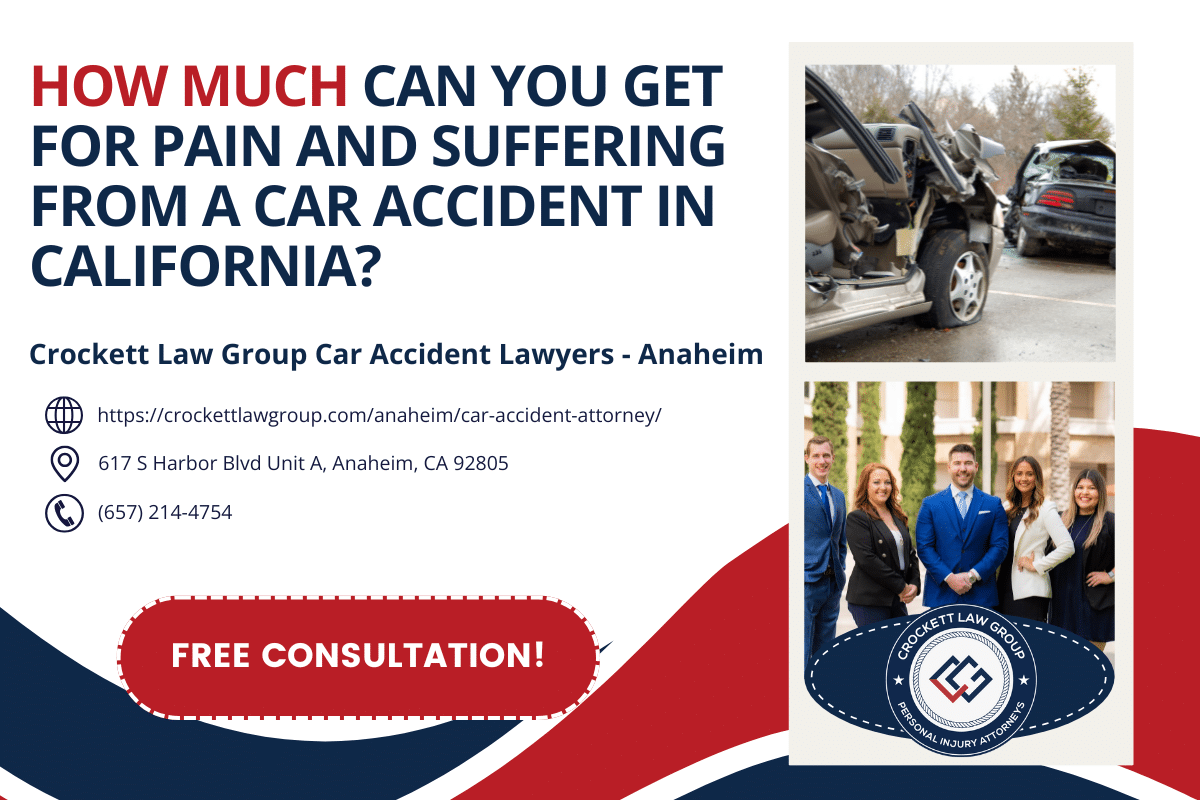When you have been involved in a collision, one of the first steps to help with your recovery is to connect with the police, ensure that they file a police report, and provide any information they need from you for that report. Even in minor accidents, this can be a huge aid for you and your case. However, you may be unsure what makes this report so important.
A police report can be a key piece of evidence when navigating a car accident claim, and it can be a useful tool for proving you are due the compensation you are seeking. However, ensuring that your police report is properly filed can be complex, which is where a car accident lawyer from The Crockett Law Group can step in. Our team is here to help you understand why these police reports are so important and how you can ensure you have the tools needed for your case.
When Should I File a Police Report?
Generally speaking, a police report is filed after a collision occurs, but that does not mean they must be filed for every single car accident. However, if you fail to file after a collision in which a report is required, you may face legal consequences. So how do you know when you should file a police report?
In California, police reports must be filed anytime someone is injured or killed in an accident. You must also file if property damage occurring in the accident is more than $1,000. State law requires that you complete an SR-1 report, also known as a report of traffic accident occurring in California.
Keep in mind that you have a short period of time to file as well. You will need to file this report within 10 days of your accident, or you may face legal consequences. Fortunately, your attorney can guide you through this process and ensure that you act properly and promptly to ensure this report is filed in time.
Pro Tip
Generally, it is best to file your police report as soon as you are able. Waiting can lead to delays and issues that land you with serious consequences.
The Impact of Filing a Police Report After an Accident: A Report Can Make a Difference
If you are involved in a collision, a police report can be a vital source of information about the crash. Because of this, even if your accident does not quite meet reporting requirements, it can still be a useful tool to file this report. Below are some of the specific uses you may have for your report and how it can make a big difference in your case.
It Can Help Determine Liability
Your police report will include key information about how the accident happened and who caused it. Identifying the liable party is a key part of your claim, so getting this information from the police report can help you identify the correct party and take action. It can also be a useful record of how the accident happened, especially as time passes and your memory of the accident is impacted.
It Can Offer Some Legal Protection
A police report can also offer some legal protection if there are disputes or discrepancies between your story and the story of other people involved in the accident. If the police report corroborates your version of events, you can use this report as a source of key information from the scene of the accident. That can help protect you when another party is trying to place the blame on you for the accent.
It Can Make The Insurance Process Easier
When navigating an insurance claim, you may find yourself navigating a complex situation with multiple insurance policies, conversations with insurance adjusters, and more. Fortunately, a police report can smooth over this process, giving you a key document with all of this information. For those who plan to file an insurance claim and seek out a settlement with the insurance company, this can be a handy tool to speed up this process.
It Helps Ensure Fairness and Transparency
When a car accident happens, you may find that other parties involved in the crash may have a different version of events that places more of the blame on you, for example. A police report chronicles the details of the accident, which can provide transparent and unbiased information about the accident. This can be useful for keeping all parties honest about the specifics of the accident and can provide transparency throughout this process.
It Can Give You Peace of Mind
In the wake of an accident, you may feel overwhelmed and may struggle to identify the best path forward for your claim. When you need peace of mind, filing an accident report in the wake of your crash can provide peace of mind that you have all the information needed to file an insurance claim or to take your case to court. When you know that you have these tools at your disposal, you can spend less time worrying about these specific details and more time recovering from the devastating injuries you have suffered.
Information That Should Be Included in Your Police Report
As you navigate a police report, there is certain information that should always be included in that report. This information can help you ensure you have all the information available within that report about your accident. This information includes all of the following:
- Your identifying and contact information
- The identifying and contact information of other parties involved in the accident
- A thorough report of any injuries, deaths, or property damage
- Your insurance information
- Details of how the accident happened and who caused the damage
When you contact the authorities following an accident, the police on the scene should prepare this information and ensure all necessary details are included in the report. Because of this, providing as much information as possible to the police can help ensure that the report is as clear as possible. The clearer your report is, the more useful it may be in the future.
Note
Following the accident, create a folder of notes and images on your phone or computer related to the accident. Memory is fallible, and having documentation of the accident can better support your version of events.
Will I Face Consequences if I Do Not File a Report?
When a collision happens, a police report is a crucial piece of evidence that can help you navigate your next steps. However, you may be unsure how necessary the stuff is. This is especially true in cases where your accident may not seem so serious.
However, you may face various penalties if you do not file an accident report. These penalties can vary, but in the worst case scenario is, you may even face legal consequences. Watch out for these consequences if you fail to file your report within 10 days of the accident.
Filing Is an Ethical Responsibility
First, keep in mind that filing is an ethical responsibility. Even if you are not required to file a police report, this report can help you and others involved in the accident get the help you need as you navigate your insurance policy. It can also help others receive compensation and justice for their injuries if you are cooperative with the filing process.
You May Face Legal Penalties for Failure to File
In some cases, you may also have legal penalties ahead of you if you fail to file a police report. For example, if you were involved in a collision, and you leave the scene instead of contacting the authorities because you thought the damage was not so severe, you may even face hit-and-run accusations. That can lead to civil and even criminal consequences under California Vehicle Code 20001.
You may also face penalties if you fail to file your report within 10 days of the accident. These accident reports are meant to be filed as swiftly as possible to prevent any delays and insurance coverage and litigation. If you fail to follow these rules, you may face fines and suspension of your driving privileges.
How to File a Police Report
To file a police report in California, first contact the police at the scene of the accident. You may be legally obligated to do so if someone was injured or killed in the accident, or if the damage was over $1,000. However, while it may not be necessary to file a report in less severe cases, it can still help you if you choose to file an insurance claim.
Once the police are on the scene of the accident, they can document the details of the accident and take your statements on how the accident happened. They will also gather contact information from you and anyone else who was involved or witness the accident. This makes the police report as thorough and useful for future use as possible.
Once this information is shared and recorded, the police report should be filed within 10 days of the accident happening. During this process, the police at the station will enter this information into their records, which will create a public document that can be used for your case. It will also be available to anyone else involved in the accident who may need that information for their claim.
Pro Tip
If you have any doubts or questions about your lawsuit, do not hesitate to reach out to an attorney. Your lawyer can provide the detailed guidance and tools you need for your specific case.
How Can an Attorney Help with My Police Report?
When you are hurt in a car accident, you need all the evidence you can gather to support your version of events before your claim goes to court. Fortunately, you do not have to file your claim without aid. Your attorney can help you navigating the filing of a police report following an accident and can be a key part of getting compensated fairly, whether you are filing an insurance claim or pursuing compensation through litigation.
We Can Assist in Navigating Your Report
Generally, once you have provided the necessary information for your police report, the police will take that report and file it in their systems. These reports should be added as soon as possible, giving you and anyone else who needs a copy of the report access as soon as possible. However, you will still need to ensure you are filing your SR-1 report within the right time period for this step.
The personal injury lawyers at The Crockett Law Group can help you navigate those process and ensure the filing process is completed a smoothly as possible. That means gathering evidence right away, presenting the correct documents to the police, and ensuring this is all done in a timely manner. Your attorney can also help you get a copy of the report to be used during your insurance filing or lawsuit.
We Can Use Your Police Report in the Courtroom
While a police report is not necessarily admissible evidence, it can be useful information if you choose to file a lawsuit. You may need contact information for eyewitnesses, a refresher on the details of your accident, and other information available in this document. Your police report will contain all of this information and more, but you can use as you navigate this area of your claim.
Your attorney can take advantage of the information provided to take action for your case. That includes using the details of how the accident happened and who is liable for the accident to hold the correct parties accountable for your injuries. These tools can guide you through this complex legal process and ensure you get the compensation you are due.
Need Help Navigating Your Police Report? We Are Here to Help
When you have been injured in a vehicle collision, you may be hurt, suffering, and confused about your next steps forward. You may be unsure whether you have grounds for a claim, and the evidence and memories of the accident may fade over time. Your police report can be vital part of your recovery, but without the right tools, you may struggle to follow a lawsuit, negotiate an insurance claim, or otherwise get compensated.
At The Crockett Law Group, we are dedicated to helping our clients take the right steps toward compensation, from correct filing of these reports to the final days in the courtroom. Our team is ready to start with a free consultation, where we can discuss the details of your claim, help you file a police report, and pursue compensation for your claim. When you are ready to learn more about our services and take action, reach out by calling or by filling out our online contact form.










